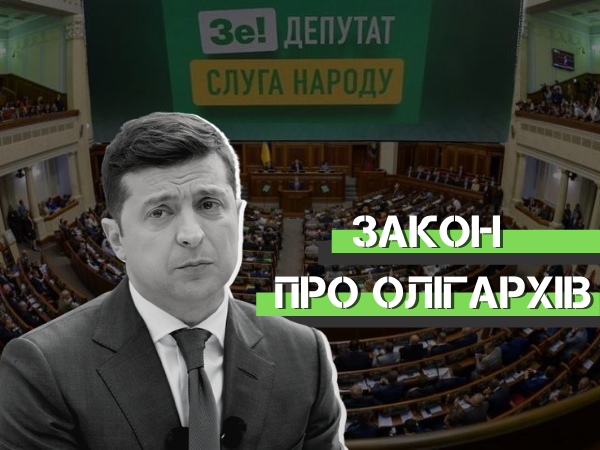
The parliament voted Thursday in favor of the draft law no.5599 ‘On prevention of threats to national security in connection to excessive influence of individuals who have considerable economic and political weight in public life (oligarchs’).
Predictably, most of ‘yes’ votes (231) came from Zelensky’s ‘Servant of the People’ party. The policy is set to curb powers and political influence of Ukrainian oligarchs.
In his eariler statement, the Ukrainian president who was a driving force behind the policy claimed the law will help to ‘overcome the conflict of interests produced by alliance of politicians, media and big business and tags an oligarch as ‘an individual that has considerable economic or political weight in public life’.
Who can be labeled as an ‘oligarch’?
According to the criteria outlined by the proposed law, it is a person who (a) participates in political life (b) has considerable influence over mass media (c) is an end beneficiary (owner) of a business that claims a monopoly (or dominating) status on the domestic market (d) claims ownership to the assets that totals over a million of living wages as of January 1 (currently it is equal to 2,270,000,000 hryvnas).
The criteria of ‘participation in political life’ makes the norm applicable to a wide list of people including (a) high-rank state officials, (b) MPs, (c) persons ‘affiliated with the former two’, (d) holds a top position in political parties, (c) those who have funded activities of political parties, their campaigns, rallies or demonstrations.
The norm on ‘considerable influence over mass media’ lists individuals who are
- beneficiaries (owners) of mass media companies
- ‘controllers’ of media companies
- or, as of the date the law is made effective’ doesn’t longer claim such status but still is affiliated with person(s) controlling the media company or is linked with new media controller with ‘disputed business reputation’
Who is authorized to ‘tag’ a person as an oligarch?
A decision can be made by National Security and Defence Council on request from its members, Ukraine’s government, National Bank of Ukraine, the SBU, or State Antimonopoly Committee.
What are the implications for those regarded as oligarchs?
Individuals that meet the law criteria will be listed in a special Register.
On landing on such Register lists, such individuals will face the ban to make donations to political parties and acquire businesses in ‘process of big privatization campaign’. They will also have to submit ‘electronic declarations’ on their assets.
‘Declaration on contacts’
Public officials who have communicated with the registered oligarchs will need to submit a declaration on such contacts. Such declaration is made applicable for a wide range of state officials, judges and governmental agencies.
Failure at submitting of such declarations will be penalized.
The law is to be made effective in 6 months after it is procrlaimed adopted by the Verkhovna Rada and is set to be in place for 10 years.

 Creative director of ROA Patrick Stengbye talking about the shoes he chooses for running, what the brand will surprise us with in 2024 and President Zelensky’s style
Creative director of ROA Patrick Stengbye talking about the shoes he chooses for running, what the brand will surprise us with in 2024 and President Zelensky’s style 



